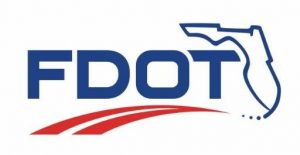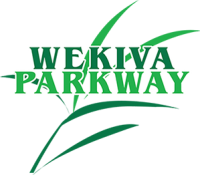The Florida Department of Transportation (FDOT) is set to open the longest section of the Wekiva Parkway (State Road (S.R.) 429) as soon as Monday, May 16. This milestone marks a dramatic leap forward in completing Central Florida’s beltway, while helping to protect the resources surrounding the Wekiva River.
The four-laned parkway will bring convenience to area residents, making travel easier and reducing commute times between Sanford and Mount Dora, among other destinations. Motorists will now be able to drive for more than 6 miles on the new elevated roadway, getting on or off at the S.R. 429 interchange near Camp Challenge Road in Lake County and via ramps just west of Longwood Markham Road in Seminole County.
The S.R. 46 frontage road will continue to provide local access; it will likely see traffic decrease as more motorists begin to take the parkway. A parallel, multi-use trail will enhance the mobility of pedestrians and bicyclists – as well as expand access to the area’s state parks.
The parkway features all electronic tolling for the greatest customer convenience and to keep traffic moving. Motorists are encouraged to have a SunPASS or E-PASS to take advantage of the greatest travel savings. Those without an electronic transponder may pay their toll via Toll-by-Plate. The toll for this section for two-axle vehicles is $1.00 for SunPASS customers and $1.25 for those using Toll-by-Plate. To learn more about parkway travel costs, click here.
The Wekiva Parkway was designed with the surrounding environment in mind. This parkway stretch contains several wildlife crossing bridges meant to help keep motorists and animals safe in the Wekiva River Basin. The new crossings provide nearly 1.5 miles of space for animals to travel underneath the roadways between the Seminole State Forest and Rock Springs Run State Reserve – about 100 times more space than existed prior to the project. To further reduce collisions between motorists and animals, FDOT also realigned about a mile of County Road (C.R.) 46A out of the Seminole State Forest.
Environmental preservation was crucial to developing the parkway. The Wekiva River Basin provides habitat for many rare or threatened species including the Florida Black Bear, Bald Eagles, Burrowing Owls, Sandhill Cranes, Gopher Tortoises, Florida Scrub-Jays, and Eastern Indigo Snakes. The basin includes more than 25 known springs with direct connection to the Floridan Aquifer. Vast areas of floodplains and wetlands, including the Wekiva and Seminole Swamps, are located west of the river. These are among the reasons why parkway development included limiting the number of interchanges in natural areas and buying 3,400 acres of land for conservation.
Great care was taken to design the new bridges over the renowned Wekiva River, a National Wild and Scenic River and Florida Outstanding Waterway. The three bridges completely span the river, with no structures in the channel. At about 60-feet tall, the bridges are buffered by the tree canopy from the surrounding communities. The higher bridges mean animals can pass safely along the riversides under the parkway and provide a more open, pleasant experience for recreational users on the river.
The $1.6 billion Wekiva Parkway (S.R. 429) will connect to S.R. 417, with the entire parkway expected to be open to traffic in early 2023. FDOT opened the first of 14 parkway sections in January 2016. The Wekiva Parkway was the first expressway in Central Florida to feature all electronic tolling. Project updates and information can be found on WekivaParkway.com.
Media inquiries should be directed to the FDOT District Five Communications Office at [email protected] or by phone at 386-943-5593.


